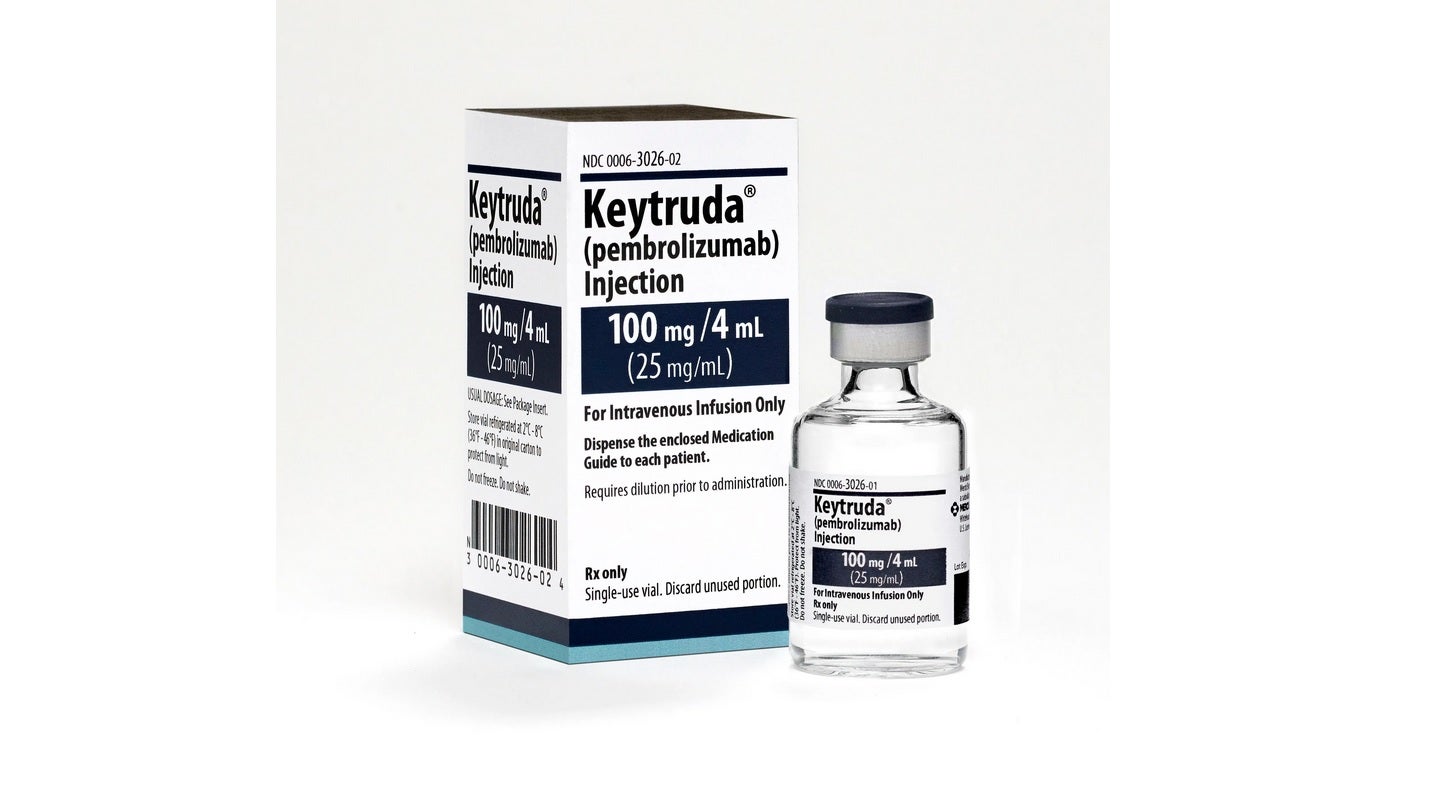
Merck has reported that the Phase III KEYNOTE-564 trial of its anti- programmed death receptor-1 (PD-1) therapy, Keytruda (pembrolizumab), achieved the key secondary endpoint of overall survival (OS).
In the trial, Keytruda improved OS in patients with renal cell carcinoma (RCC) at intermediate-high or high risk of recurrence after nephrectomy or nephrectomy with metastatic lesion resection when used as an adjuvant treatment.

Discover B2B Marketing That Performs
Combine business intelligence and editorial excellence to reach engaged professionals across 36 leading media platforms.
It showed a statistically significant and clinically meaningful improvement in OS against placebo at a pre-specified interim analysis review carried out by an independent Data Monitoring Committee.
The double-blind, randomised KEYNOTE-564 trial is designed to assess Keytruda for the adjuvant treatment of RCC patients who have undergone nephrectomy and have intermediate-high risk, high risk or M1 no evidence of disease.
A total of 994 patients were enrolled and randomised into a 1:1 ratio to receive either Keytruda or placebo.
Previously, the trial attained its primary endpoint of disease-free survival (DFS) at an earlier pre-specified interim analysis with a median 23.9-month follow-up.

US Tariffs are shifting - will you react or anticipate?
Don’t let policy changes catch you off guard. Stay proactive with real-time data and expert analysis.
By GlobalDataMerck Research Laboratories senior vice-president and head of late-stage oncology, global clinical development Dr Marjorie Green said: “As we continue to evaluate the potential of Keytruda in earlier stages of disease across multiple types of cancer, we hope to reduce disease recurrence and ultimately, improve overall survival outcomes.”
Keytruda helps enhance the body’s immune system’s ability to detect and kill tumour cells.
It is a humanised monoclonal antibody that restricts the interaction between PD-1, PD- L1 and PD-L2 ligands, thereby activating T lymphocytes that may affect both healthy and tumour cells.





